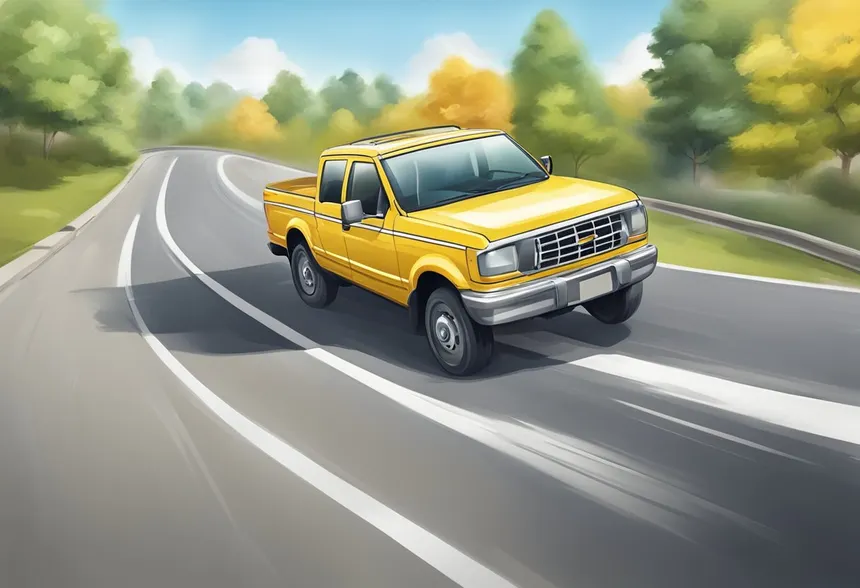What Do We Do When The Miracles End?

It’s no secret that I love stories, particularly, Jewish stories. And amongst my greatest joys as a father, is that my my kids seem to love them too.
However, there is a particular genre of story which is in vogue at the moment, and for a while, I’ve been bothered by it. There is there’s something a little unsettling about “the Hashgacha Pratis story”.
It hit me last week, erev Shabbos. The Rebbetzin called me, sending me on a mission to pick up a last minute item at the Grove. With two of the kids in the car, and not a lot of time, we arrived at the Grove parking lot. I had already pre-empted my kids that this was a very quick trip. No candy, no wandering around the store. In. Out. Done.
I had done everything in my power... But the parking lot is in the hands of Hashem.
Lo and behold, as we pulled in, a car right in front of the store pulled out. Miraculously, no one was waiting for the spot. In less than ten seconds, mission accomplished. It felt like the single quickest parking event in the history of Boca Raton.
One of my kids turned to me, “Abba, that was really lucky! ... No wait! It’s Hashgacha Pratis!”
As a father, that made me so happy. We all pray that that our children recognize and realize Hashem’s Hand in their lives. But this is not what Hashgach Pratis means.
Don’t get me wrong. These stories are often quite beautiful, contemporary, relevant, meaningful and true. But on the deepest level, we’re missing the point, and dangerously so.
Hashem’s divine attention in our lives is not only when things go swimmingly; He is just as present making things difficult.
To illustrate, let’s revisit Eliezer and Rivka at the well, as Rashi teaches us:
וירץ העבד לקראתה: לְפִי שֶׁרָאָה שֶׁעָלוּ הַמַּיִם לִקְרָאתָהּ
The servant ran toward her — because he saw that the waters rose in the well when she approached it (Genesis Rabbah 60:5).
Rivka, as we know, acquiesces to Eliezer request, graciously offering to draw water for this stranger and his caravan of camels.
But the Ramban (כד:יז) makes a unsettling observation:
וְנַעֲשָׂה לָהּ הַנֵּס בַּפַּעַם הָרִאשׁוֹנָה, כִּי אַחֲרֵי כֵן כָּתוּב “וַתִּשְׁאַב” – This miracle happened to her only the first time for afterwards it is written, “and she drew”.
Imagine that you’re Rivka. As you approach the well, the waters miraculously rise to meet you. Green lights all the way. Life is great. You see a traveller in need, so you stop, and offer to help.
And precisely at that moment, the miracles end. The water recedes to the bottom of the well. Now it’s just you, alone to draw water, lifting jug after jug for some random stranger, exhausting your time and energy. Where’s the Hashgacha Pratis here? What happened to Hashem’s Hand?
Perhaps Hashem doesn’t want her to draw this water for this man? Perhaps this is Hashem’s silent protest? Perhaps Rivka is no longer worthy of this miracle?
The Kedushas Levi (חיי שרה ד”ה וירץ העבד לקראתה) explains:
מה שאין כן בפעם שניה שכוונתה היה לגמול חסד להשקות הגמלים של אליעזר עבד אברהם לא עלו המים לקראתה, שכשאדם עושה מצוה יותר נחשב לעשות פעולה שבעשותו פעולה לשם מצוה נחשב לו יותר למצוה והבן:
...The second time, when she did an act of kindness to others, Hashem withheld His assistance, because the mitzvah is far greater when effort is expended in it’s performance.
When the miracles end, and life get hard, there are two ways of looking at the situation. Option one: we can conclude that Hashem has withdrawn because doesn’t want to be part of this. Or, option two: we can conclude that this is exactly what Hashem wants us to be working on ourselves.
It’s that second option that gets to the root of Hashgacha Pratis.
To become a mother of the Jewish people, Rivka will need to grow even greater and even stronger in her chessed and hachnasas orchim. And we all know that miracles don’t make us stronger.
All this is to say, that perhaps the greater Hashgacha Pratis would’ve been driving around the parking lot at the Grove for fifteen minutes, learning how to remain calm when time is short and drivers are infuriating.
The Avoda of seeing Hashem’s Hashgacha in our lives should not be limited to gratitude when things are great. Far and beyond, Hashem is inviting us to grow while He cheers from the sidelines.
___
Subscribe to this blog here👇.
YouTube: www.youtube.com/raelblum Facebook: facebook.com/rael.blumenthal